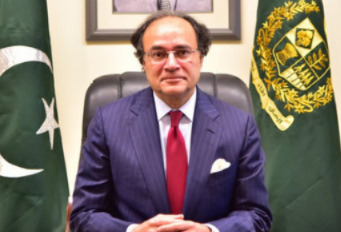Islamabad – Pakistan’s Finance Minister, Muhammad Aurangzeb, confirmed on Thursday that the long-standing negotiations over a $7 billion International Monetary Fund (IMF) bailout have been resolved. The deal, critical to stabilizing Pakistan’s economy, is now scheduled for final approval during a meeting of the IMF’s executive board on 25 September.
In a statement earlier in the day, the IMF announced its plans to convene at the end of the month to discuss the loan, dispelling fears of further delays in releasing much-needed funds. This 37-month programme, agreed in July, has been awaiting formal approval since then.
Prime Minister Shehbaz Sharif acknowledged that assistance from “friendly countries” played a pivotal role in securing the agreement. Among the requirements imposed by the IMF were provisions for additional external financing and debt rollovers. China, Saudi Arabia, and the United Arab Emirates – long-time allies of Pakistan – have once again provided crucial financial support, helping the country meet IMF prerequisites.
“Pakistan has amicably settled all outstanding matters with the IMF,” said Aurangzeb. “We anticipate that the finalization will take place at the upcoming board meeting.”
The nation narrowly avoided a sovereign default last summer, thanks to a short-term $3 billion IMF bailout, which helped stabilise dwindling foreign reserves, an ailing currency, and rampant inflation. On Thursday, Pakistan’s sovereign dollar bonds reflected the improved outlook, with its 2031 maturity trading at 79.93 cents to the dollar, according to data from Tradeweb.
Pakistan has long struggled with cyclical economic crises, relying on external financial support. Since 1958, it has sought IMF assistance 22 times. However, the current crisis, described as one of the most prolonged in recent history, has pushed the country perilously close to insolvency. The conditions for the new bailout are stringent, including increased taxes on agricultural income and higher electricity tariffs. The programme is designed to promote long-term stability and inclusive growth in Pakistan.
An IMF spokeswoman expressed satisfaction with Pakistan’s progress. “We are pleased to confirm that the board meeting is scheduled for 25 September, following assurances from Pakistan’s development partners regarding necessary financing. Consistent policy-making has fostered economic stability, with a return to growth, notable disinflation, and a significant rise in foreign reserves.”
The agreement marks a significant step forward for Pakistan, offering a glimmer of hope for an economy grappling with profound structural challenges.















